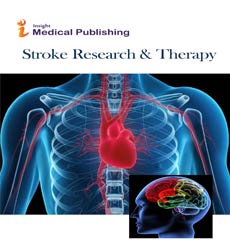Abstract
Motor and Cognitive Impairment after Stroke: A Common Bond or a Simultaneous Deficit?
Motor and Cognitive Impairment after Stroke: A Common Bond or a Simultaneous Deficit?
Background: The prevalence of both motor deficit and cognitive impairment after stroke is high and persistent. Motor impairment, especially paresis, is often more obvious to both patients and their carers while cognitive problems can also have devastating effects on quality of life. The current review explores whether there might be a link between motor and cognitive impairment after stroke in the same patients.
Evidence acquisition: Electronic databases were searched systematically. Studies fulfilled the selection criteria when they were written in English and when both motor and cognitive deficit after stroke were evaluated and analyzed in the same patients, either with objective or subjective measures.
Results: 20 papers were included in this review. Measures of gait, balance and limb function were consistently correlated with aspects of attention and executive functioning in 9 studies. Correlations were robust when objective measures for specific functions were used, while results based on subjective or global measures tended to be more heterogeneous.
Conclusions: Motor and cognitive impairment appear to be linked in stroke. Studies which assessed correlations between the two domains in the same patients (irrespective of time post stroke) found, on the whole, strong links between walking and balance tasks and the cognitive domains of attention and executive functioning. Whether the same mechanisms or neural pathways underlie these deficits or whether they are occurring simultaneously remains to be explored.
Author(s):
Sonja Verstraeten, Ruth Mark and Margriet Sitskoorn
Abstract | Full-Text | PDF
Share this

Google scholar citation report
Citations : 63
Stroke Research & Therapy received 63 citations as per google scholar report
Abstracted/Indexed in
- Google Scholar
- Secret Search Engine Labs
Open Access Journals
- Aquaculture & Veterinary Science
- Chemistry & Chemical Sciences
- Clinical Sciences
- Engineering
- General Science
- Genetics & Molecular Biology
- Health Care & Nursing
- Immunology & Microbiology
- Materials Science
- Mathematics & Physics
- Medical Sciences
- Neurology & Psychiatry
- Oncology & Cancer Science
- Pharmaceutical Sciences

